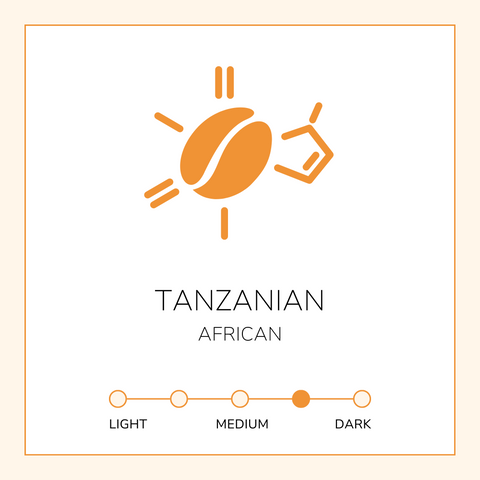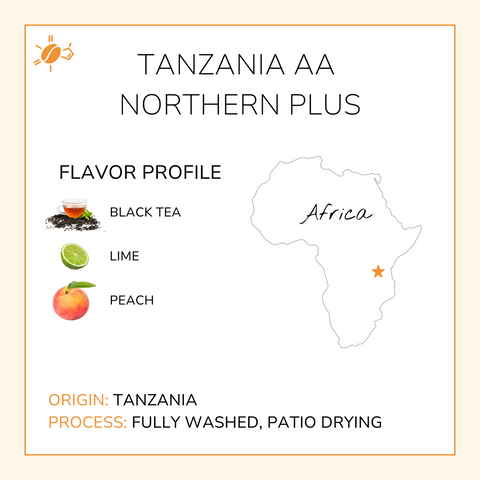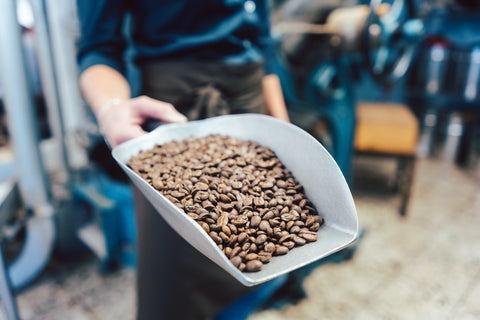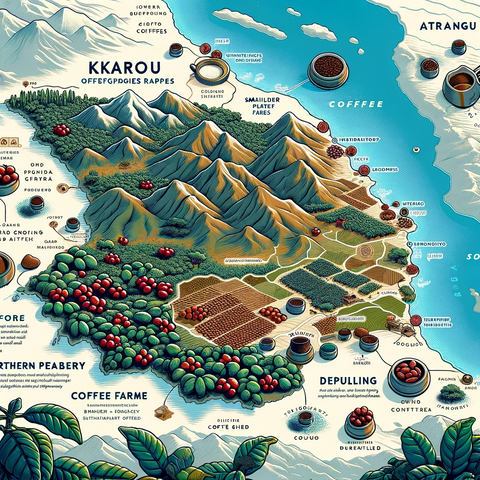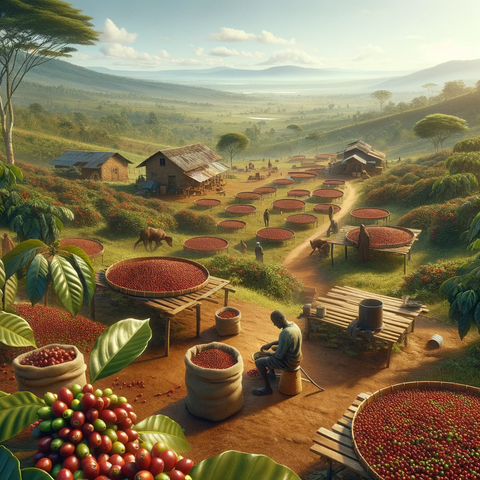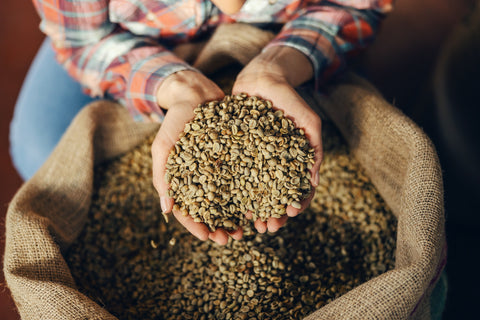🔬 Under The Microscope
Roaster Notes:
Tanzania coffee, known for its above-average body, offers a delightfully rich and robust experience. It begins with a base that is both full and smooth, creating an exquisite canvas for its complex flavor profile. The first note to greet the palate is the crispness of black tea, which provides a refined and slightly earthy foundation. This is beautifully contrasted by the vibrant zest of lime, adding a refreshing and invigorating twist that awakens the senses. Complementing these flavors are the sweet, juicy undertones of ripe peach. These peach notes bring a gentle, fruity sweetness that rounds out the flavor profile, creating a harmonious balance between tart and sweet. This unique blend of tastes makes Tanzania coffee an exceptional choice for those who appreciate a coffee with depth and character. Its rich body and intriguing combination of black tea, lime, and peach offer a distinctive and memorable coffee experience.
Country of Origin:
Tanzania
Best Brewing Method:
French Press

